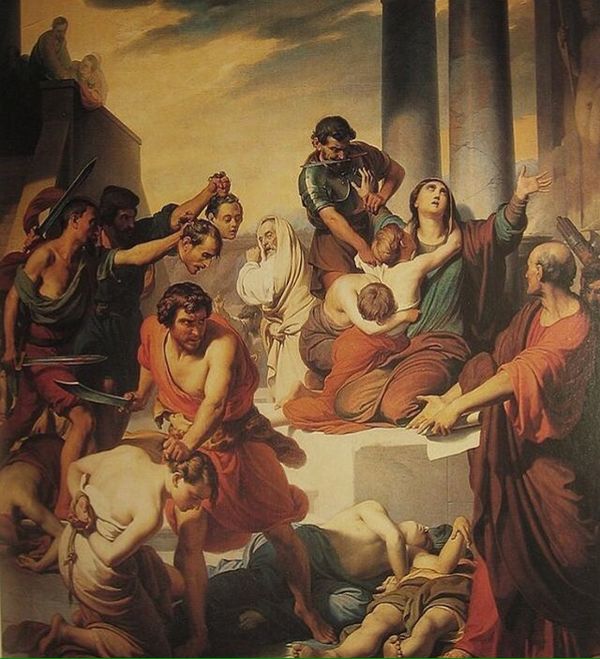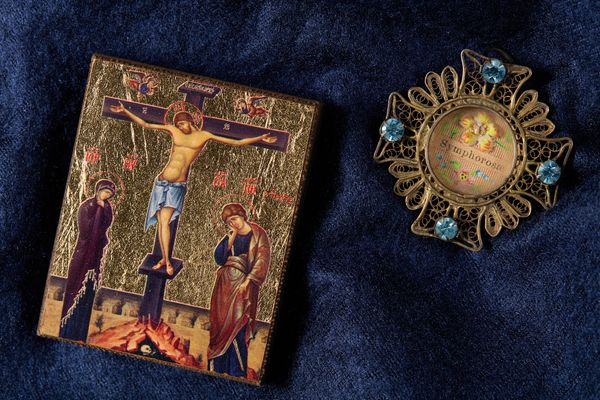St. Symphorosa lived in the second century and was the widow of St. Getulius. She is commemorated together with their sons, Crescens, Julian, Nemesius, Primitivus, Justin, Stracteus and Eugene. Her husband, St. Getulius, was a native of Gabii in Sabina. He was an officer in the Roman army, but resigned upon being baptized a Christian, ultimately retiring to his estate near Tivoli. Caerealis, an imperial legate, was sent to arrest him, but was converted to Christianity by St. Getulius. Another officer, Primitivus, was sent to arrest Getulius, but he was also converted.
Upon the orders of Emperor Hadrian, the men were tied to a stake and set alight. The fire did not harm them, so they were brutally clubbed and then beheaded. St. Symphorosa buried their remains in an arenarium on their estate.
Shortly after her husband's martyrdom, St. Symphorosa and her seven sons were brought before Emperor Hadrian who demanded that they worship the pagan gods. Refusing, St. Symphorosa received a martyr's crown when, after various tortures, she was thrown into the Anio River with a heavy rock fastened to her neck. Her brother took her remains and buried them alongside her martyred husband.
Each of her sons suffered a different kind of martyrdom: Crescens was pierced through the throat, Julian through the breast, Nemesius through the heart, Primitivus was wounded at the navel, Justinus was pierced through the back, Stracteus was wounded in the side, and Eugenius was cleft in two from top to bottom. Their bodies were thrown into a deep ditch from which they were ultimately recovered by the Christian community.
Getulius' relics were ultimately moved to Rome, and are in the principal altar of the Church of St. Angelo.
In 752, the relics of St. Symphorosa and her seven sons were also transferred to the Church of St. Angelo in Rome. In 1587, the relics were enclosed in a marble sarcophagus.
Credits:
Discriptions of saints lives and biographies have been excerpted, summarized, or compiled from
Franciscan Media,
CatholicSaints.Info,
Catholic Online, and
Wikipedia.

